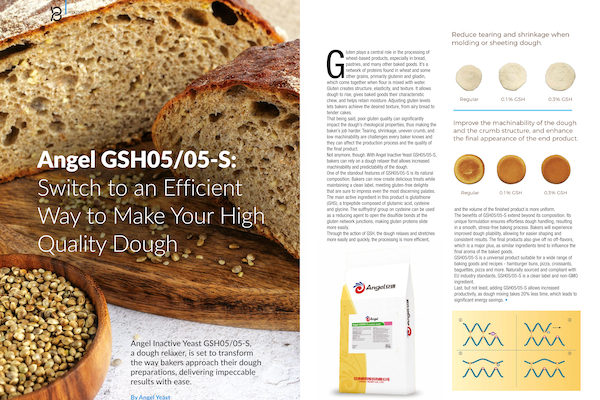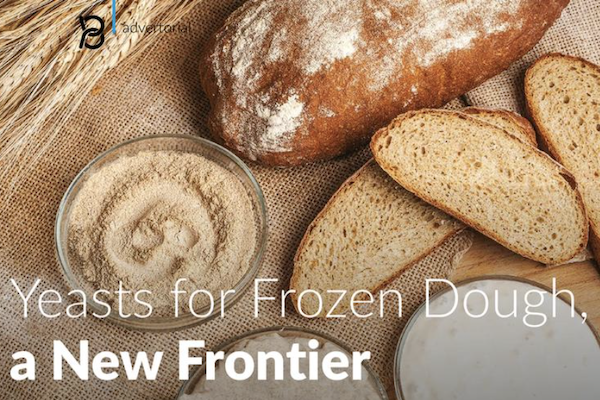-
Home > News & Events > Blog > Yeast & Baking
Feb. 17, 2024
By Sam Hu
Yeast protein, a type of protein derived from brewing yeast, is a natural and dry fermented ingredient, suitable for vegan diets, free from GMOs, and has no allergens. Its advantages help bakers reformulate to increase the protein content of their products and answer to the market’s expectations.

In the trend of dietary 'healthization', "low-carb, low-fat, high protein" has become a leverage in consumers' minds. The per capita and annual demand for plant protein and animal protein have significantly increased worldwide. In recent years, due to constraints such as resource availability and climate changes, protein sources have started to upgrade, and protein substitutes have gradually become a development trend in the industry. In this context, yeast protein has emerged as a standout candidate.
Currently, there is a huge protein deficit worldwide, and the global protein market demand continues to grow. According to The Brainy Insight, the global yeast protein market is expected to reach USD274m by 2030, increasing at a CAGR of 8.9%. Asia Pacific is expected to grow the fastest.
The sustainability advantages of yeast protein have also made it increasingly favored by the food industry. Yeast protein is a type of protein derived from brewing yeast (Saccharomyces cerevisiae) through processes such as enzymatic hydrolysis and extraction. It is rich in protein, offers excellent flavor, and is known for its high safety standards. As a result, it is widely accepted and can be utilized in food processing for long-term application.
Angeopro, the yeast protein range developed by Angel Yeast Company, is a high-quality protein (≥75%), which contains essential amino acids in a higher proportion compared to the WHO/FAO standards, with a well-balanced distribution. The ingredient is heat and pH tolerant with a stable structure of yeast protein making it highly resistant to thermal energy and has good tolerance to acidity and alkalinity, making it suitable for baking purposes. It is free from gluten, soy products, and dairy products, reducing the risk of allergies. Additionally, it is non-genetically modified. It can mask unwanted off-notes and it is itself free from yeasty notes and off-notes.
The production of yeast protein is suitable for large-scale manufacturing, significantly reducing water consumption and land usage. Its carbon emissions are only one-twentieth of beef production, making it environmentally friendly and significant in terms of sustainability.
Yeast Protein Impact on Formulations and Dough Rheology
Yeast protein, like soy protein and pea protein, has inherent water-absorbing properties. When added to dough, it can make dough tougher and will affect the dough’s rheological properties. Therefore, extra water is needed to prevent the dough becoming too tough. Moreover, when the yeast protein level is relatively high, it is necessary to add some wheat gluten or other ingredients that strengthen the dough gluten to improve its properties and reach the ideal baking performance.
Therefore, when yeast protein is used for high-protein bread that contains above 12% protein, it is necessary to consider the overall balance of the dough formulation. Angel Yeast Company has been developing and acquiring knowledge of how yeast protein is best applied in bread and other bakery products, and can provide tailormade technical support for the customers.
Yeast protein can be directly mixed with flour, offering a simple and convenient operation, ultimately enhancing the protein content of baked goods. It is suitable for baking products such as toast, energy bars, cakes, cookies and tortilla.
Competitive Advantages for Yeast Protein
Compared to plant protein, yeast protein requires less arable land and does not use pesticides or antibiotics. In addition, research has shown that the carbon emissions from producing fresh yeast protein are only one-twentieth of that from producing beef. Currently, the fermentation process for producing yeast protein is mature, with high manufacturing efficiency, making it suitable for large-scale production. It also significantly reduces water consumption and land area requirements.
After amino acid score correction and digestion rate adjustment, yeast protein surpasses soy protein in terms of amino acid score and is on par with whey protein.
The ratio of essential amino acids to non-essential amino acids reaches 0.91, meeting the FAO/WHO standard of 0.6, surpassing soy protein and approaching whey protein. Yeast protein significantly delays the transformation of fast muscle fibers to slow muscle fibers. It also substantially alleviates age-related muscle loss and mitigates the age-related decline in intestinal histology and function, suggesting a potential involvement of gut microbiota in the intervention and regulatory mechanisms.
Yeast protein is a complete protein with a balanced amino acid composition, superior protein quality compared to plant protein, and equivalent to whey protein. It exhibits slow digestion and belongs to the category of "slow-release protein," providing sustained supply to meet the body's needs.
Yeast protein is sold in the European, American, and Asia-Pacific markets, catering to large-scale food processing factories, vegetarian bakers and artisans.
About Angel
Angel Yeast Company is a high-tech listed company specializing in yeast and biotech. Product business covers Yeast and Baking, Yeast Extract-Savoury, Nutrition & Health and Biotechnology fields. It is one of the world's leading companies in the yeast industry. Angel has 12 holding subsidiaries and provides products and services for more than 150 countries and regions.
Press Contact
ANGEL YEAST CO.,LTD
Address: 168 Chengdong Avenue, Yichang, Hubei 443003, P. R.China
Tel: +86-717-6369520, 6369558
Fax: +86-717-6370680
Email: yangzi@angelyeast.com




